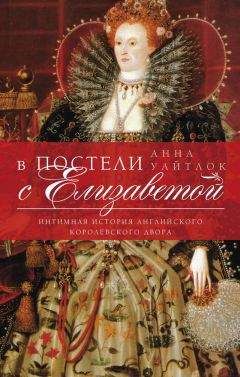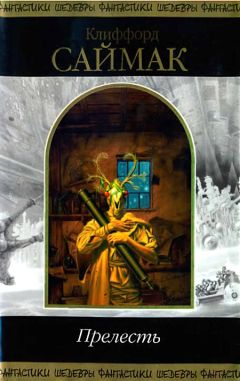7
В других источниках ее фамилия передается как Астли. (Примеч. пер.)
Samuel Haynes, A Collection of State Papers…. Left by William Cecil Lord Burghley and Now Remaining at Hatfield House (London, 1740), 99.
Ibid.
Ibid.
Haynes, Burghley State Papers, 96; Elizabeth I: Collected Works, 17–18.
J. Stevenson (comp.), The Life of Jane Dormer, Duchess of Feria by Henry Clifford (London, 1887), 86–87.
Мэри Сеймур исчезает из исторических хроник после 1550 г.; скорее всего, она умерла в двухлетнем возрасте.
APC (1547–1550), 236–238. См.: G. W. Bernard, ‘The Downfall of Sir Thomas Seymour’ в сборнике под его ред. The Tudor Nobility (Manchester, 1992), 212–240.
Haynes, Burghley State Papers, 89–90.
TNA SP 10/6, l. 57.
Haynes, Burghley State Papers, 96.
Ibid., 99–101.
Ibid., 102.
CSP Dom, 1547–1553, 82; APC (1547–1550), 240.
Haynes, Burghley State Papers, 70.
Ibid., 107.
Ibid., 108–109.
BL Lansdowne MS 1236, l. 35; Henry Ellis (comp.), Original Letters Illustrative of English History, in 11 vol. (London, 1824–1846), is. 3, II, 153–155.
См.: Sheila Cavanagh, ‘The Bad Seed: Princess Elizabeth and the Seymour Incident’//Julia M. Walker (comp.), Dissing Elizabeth: Negative Representations of Gloriana (London, 1998), 9–29. См. также: Janel Mueller, ‘Elizabeth Tudor. Maidenhood in Crisis’ // Elizabeth I and the ‘Sovereign Arts’, Essays in Literature, History and Culture, Donald Stump, Linda Shenk (comp.) (Arizona, 2011), 15–28.
Marc Shell, Elizabeth’s Glass (Lincoln, Nebraska, 1993). См.: J. Dewhurst, ‘The Alleged Miscarriages of Catherine of Aragon and Anne Boleyn’, Medical History, 28 (1984), 49–56.
J. L. Vives, De Institutione Feminae Christianae, C. Fantazzi and C. Matheeussen (comp.), in 2 vol. (Leiden, 1996), 63, 65, 71.
Ibid., 40–41.
Ibid., 41, 51–53.
См.: Frank A. Mumby, The Girlhood of Queen Elizabeth: A Narrative in Contemporary Letters (London, 1909), 69–72.
См.: Vincent Joseph Nardizzi, Stephen Guy-Bray, Will Stockton (comp.), Queer Renaissance Historiography, Backward Gaze (Farnham, 2009). Алан Брей в своем плодотворном труде, посвященном мужской дружбе, показал, что мужчины часто прикасались друг к другу, вместе ели и спали в одной постели без какого-либо сексуального контекста. См.: A. Bray, The Friend (Chicago, 2003). Труднее утверждать то же самое о женщинах, поскольку женская дружба с политической точки зрения считалась «маловажной».
См.: Judith M. Richards, ‘To Promote a Woman to Beare Rule: Talking of Queens in Mid-Tudor England’, The Sixteenth-Century Journal, 28. 1 (1997), 101–121; Constance Jordan, ‘Women’s Rule in Sixteenth-Century British Political Thought’, Renaissance Quarterly, 40 (1987), 421–451; Paula Louise Scalingi, ‘The Scepter or the Distaff: The Question of Female Sovereignty, 1515–1607’, The Historian, 42 (November, 1978), 59–75. См. также: Margaret R. Somerville, Sex and Subjection: Attitudes to Women in Early Modern Society (London, 1995), Jacqueline Eales, Women in Early Modern England: 1500–1700 (London, 1998); P. Crawford, ‘Sexual Knowledge in England, 1500–1700’// R. Porter and M. Teich (comp.), Sexual Knowledge, Sexual Science: The History of Attitudes to Sexuality (Cambridge, 1994), 92–106. См. также: Lawrence Stone, The Family, Sex and Marriage in England, 1500–1800 (New York, 1977).
См., напр.: LP, 1536, 47–54. Шапюи, посол императора Карла V, открыто называет Елизавету «маленьким бастардом», см. 51.
Елизавета считалась третьей в очереди престолонаследия (1544). Два года спустя Генрих VIII включил ее в свое завещание, однако не аннулировал Акт о престолонаследии 1536 г., по которому она провозглашалась незаконнорожденной. Последнее послужило основой для притязаний Марии Стюарт, чему сам Генрих VIII всячески противился. Генрих считал, что своим завещанием он устанавливает четкий порядок престолонаследия и устраняет претензии Стюартов. Его документ положил конец строгим правилам передачи престола по наследству. В том случае, если его дети умрут, не произведя на свет наследников, корона должна была перейти к потомкам герцогини Суффолк. Подробности см.: Mortimer Levine, Tudo Dynastic Problems, 1460–1571 (London, 1973) и его же The Early Elizabethan Succession Question, 1558–1568 (Stamford, 1996).
A. N. McLaren, ‘The Quest for a King: Gender, Marriage and Succession in Elizabethan England’, Journal of British Studies, 41 (July, 2002), 259–290.
Susan Dunn-Hensley, ‘Whore Queens: The Sexualised Female Body and the State’//Carole Levin, Jo Eldridge Carney and Debra Barrett-Graves (comp.), High and Mighty Queens of Early Modern England: Realities and Representations (Basingstoke, 2003), 101–116.
William Allen, An Admonition to the Nobility and People of England and Ireland… (Antwerp, 1558), xviii.
Francis Osborne, Historical Memoires on the Reigns of Queen Elizabeth and King James (London, 1658), 61.
BL Cotton MS Galba C IX, l. 128.
Edmund Bohun, The Character of Queen Elizabeth; or a full and clear account of her policies (London, 1693), 73. В их число входили также Эдвард Куртене, Филипп Испанский, Эрик Шведский и два французских герцога, герцог Норфолк, граф Арундел, сэр Уильям Пикеринг, Роберт Дадли.
Stevenson (comp.), Life of Jane Dormer, 69.
BL Harleian MS 6949 – расшифровка завещания.
CSP Span, 1554–1558, 438.
Stevenson (comp.), Life of Jane Dormer, 72; CSP Span, 1554–1558, 438.
J. G. Nichols (comp.), The Diary of Henry Machyn, Citizen, and Merchant Taylor of London, 1550–1563, Camden Society, 43 (London, 1848), 178.
R. Naunton, Fragmenta Regalia, or Observations on the Late Queen Elizabeth, her Times and Favourites, 1641, ed. E. Arber (London, 1879), 15.
TNA SP 12/1/1, l. 12.
Marie Axton, The Queen’s Two Bodies: Drama and the Elizabethan Succession (London, 1977), 12; см. также: Ernst Kantorowicz, The King’s Two Bodies (Princeton, 1957) и Albert Rolls, The theory of the King’s Two Bodies in the Age of Shakespeare, Studies in Renaissance Literature, 19 (Lewiston, Queenston and Lampeter, 2000). «К 1561 г. решено было с целью законной наделить королеву двумя лицами: лицом физическим и лицом юридическим». См.: Edmund Plowden, ‘The Treatise of the Two Bodies of the King’, BL Cotton MS Caligula B IV, l. 1–94. См. также: Marie Axton, ‘The Influence of Edmund Plowden’s Succession Treatise’, Huntington Library Quarterly 37 (3) (1974), 209–226.




